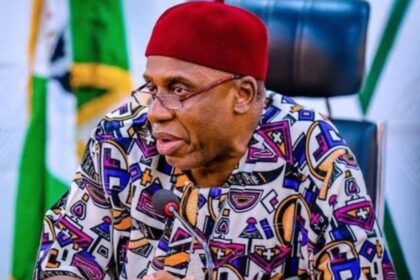United States President-elect Donald Trump has said he will deport or jail up to three million illegal migrants initially.
Those targeted would be migrants with criminal records, such as gang members and drug dealers, he told U.S. broadcaster CBS in an interview.
He also confirmed that another election promise, to build a wall with Mexico, still stood but could include fencing.
The Republican defeated Democrat Hillary Clinton in last Tuesday’s presidential vote.
His victory shocked many who had expected Mrs Clinton to win following favourable opinion polls.
Mr Trump is due to take over at the White House on January 20, when Barack Obama steps down after two terms in office.
Both houses of Congress are also under Republican control.
For the first time since winning the U.S. presidency, Donald Trump has put a number on how many people he plans to deport from U.S. soil and it’s a big one – two to three million.
Although he says this group is comprised of violent criminals, drug-dealers and gang members, to hit such a high mark would involve either casting a very wide net that covers even the smallest infractions or also deporting legal alien residents of the U.S. with criminal convictions.
To pull this off, an expanded “deportation force” would almost certainly be necessary, but Mr Trump’s advisers have spent the past few days downplaying the prospect of such an organisation.
Trump also has curtailed the scope of his “big, beautiful” border wall, acknowledging that it could be a fence in some areas. All of this is evidence that Mr Trump is grappling with exactly how to make his controversial immigration promises a reality.
Proposing a multi-billion-dollar wall and mass deportations is easy. Delivering, in the face of fiscal realities and opposition within one’s own party, is a different matter entirely.
There are around 11 million undocumented immigrants in the US, many of them from Mexico.
Trump pledged during the election campaign to overturn amnesties introduced by President Obama, and strictly enforce immigration laws, deporting those without correct documents.
In his first major interview to a U.S. broadcaster since the election, Mr Trump told CBS: “What we are going to do is get the people that are criminal and have criminal records, gang members, drug dealers, where a lot of these people, probably two million, it could be even three million, we are getting them out of our country or we are going to incarcerate.”
Asked about his plans for the Mexican border, he said “a wall is more appropriate” in some parts but “there could be some fencing”,
Other undocumented migrants would be assessed once the border was secured, Trump added.
However, another top Republican, House Speaker Paul Ryan, said yesterday that border security was a greater priority than mass deportation.
“We are not planning on erecting a deportation force,” he told CNN’s State of the Union programme. “I think we should put people’s minds at ease.”
Forcing Mexico to pay for a border wall became a rallying cry among Trump supporters during the campaign.
Their candidate caused outrage by suggesting Mexicans were exporting “their rapists” to the U.S., along with drugs and other crime.
The US-Mexico border is about 1,900 miles (3,100 km) long and traverses all sorts of terrain from empty, dusty desert to the lush and rugged surroundings of the Rio Grande.
It is one of the busiest borders in the world, with at least one million people using it each day, as well as 400,000 cars and 15,000 lorries, according to Mexico’s El Universal newspaper.
Some 650 miles are covered already by a non-continuous series of fences, concrete slabs and other structures.
Mr Trump has previously said his wall would cover 1,000 miles and natural obstacles would take care of the rest.
In another development, North Atlantic Treaty Organisation (NATO) Secretary General Jens Stoltenberg, warned Trump that “going it alone” was not an option for Europe or the U.S.



